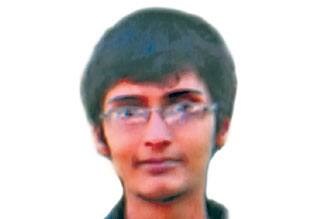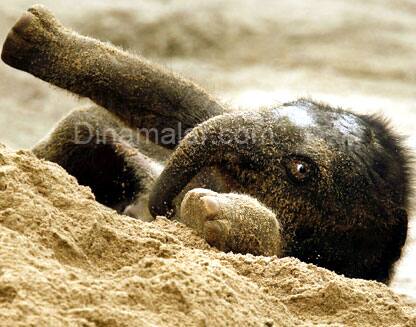UN admits use of cluster bombs three years after Vanni War
[TamilNet, Thursday, 26 April 2012, 11:30 GMT]
Sri Lanka using cluster bombs, an ordnance banned by several countries in the world, in a location where the Eezham Tamil civilians were herded during the Vanni war has been confirmed by a UN agency nearly three years after the civilians were silently allowed to succumb to such weapons by the international community. A report from a UN mine removal expert of the UNDP’s mine action group in Sri Lanka admits finding unexploded cluster munitions at Puthukkudiyiruppu, Associated Press reported Thursday, adding that the ‘revelation’ is likely to increase calls for international investigations. During the war, vividly describing the use of cluster bombs and other prohibited weapons, the affected people repeatedly appealed to the world to stop the genocide. TamilNet even published photographs of cluster bomb shells with Russian markings.
Genocidal Sri Lanka repeatedly and blatantly denied the use of cluster bombs in the war.
The
Associated Press said that on Thursday it received a copy of an email
written by Technical Adviser to the UNDP, Mr Allen Poston on Tuesday,
saying that unexploded cluster bomblets were discovered at
Puthukkudiyiruppu, where last month a boy was killed and his sister
injured while trying to pry apart an explosive devise to sell it for
scrap metal.
According to Mr Poston’s email, as the local mine
clearers don’t have the expertise in clearing cluster bombs, a de-miner
who had worked in Lebanon where Israel had used such cluster bombs in
2006, has been invited to clear the area in Vanni and train the other
demining teams. This shows the UN was aware of the presence of
unexploded cluster bombs at least for quite sometime now.
The Sri
Lankan state that was demonstrating its genocidal intentions for ages,
was not only allowed to course the Vanni War to genocide without
witnesses, but was also given with ample time and space to clear the
traces. The SL military was not allowing anybody into the former war
zone for a very long time. Informed circles say that evidences were
erased in a mass scale during this time. The UN has now gone there to
collect scrap metal, commented a war victim in Vanni.
A
spokesperson for Tamils Against Genocide (TAG), an activist group in US,
said that while many still photographs taken from the war-zone have
show alleged use of cluster bombs, TAG also has eye-witness evidence
from medical personnel who have encountered cluster munitions embedded
in injured victims. "Lack of witness protection, and danger to lives of
relatives in Sri Lanka prevent exposing this evidence immediately, but
TAG is collecting affidavits and evidence for appropriate use in the
future," TAG said.
Full text of the AP story follows:
A
report from a U.N. mine removal expert says unexploded cluster munitions
have been found in northern Sri Lanka, appearing to confirm, for the
first time, that they were used in that country's long civil war. The
revelation is likely to increase calls for an international
investigation into possible war crimes stemming from the bloody final
months of fighting in the quarter-century civil war that ended in May
2009.
The government has repeatedly denied using cluster
munitions during the final months of fighting, an Associated Press said
Thursday.Cluster munitions are packed with small "bomblets" that scatter
indiscriminately and often harm civilians. Those that fail to detonate
often kill civilians long after fighting ends.
They are banned
under an international law adopted by more than 60 nations that took
effect in August 2010, after the Sri Lankan war. Those nations that
haven't adopted the law still possess the bulk of cluster munitions,
including the U.S., which says the bombs are a valid weapon of war when
used properly. Sri Lanka, China, Russia, India and Pakistan also have
not signed the law.
The Associated Press obtained a copy Thursday
of an email written by a U.N. land mine expert that said unexploded
cluster bomblets were discovered in the Puthukudiyiruppu area of
northern Sri Lanka, where a boy was killed last month and his sister
injured as they tried to pry apart an explosive device they had found to
sell for scrap metal.
The email was written by Allan Poston, the technical adviser for the U.N. Development Program's mine action group in Sri Lanka.
It said photographs showed cluster bomblets in the area where the children had been collecting scrap and in their house.
Tens
of thousands of civilians and Tamil Tiger rebel fighters had been
trapped in a tiny area of Puthukudiyiruppu as government forces attacked
the area during the final weeks of the war.
Lakshman Hulugalla, a
Sri Lankan government spokesman on security matters, had no immediate
comment. The U.N. also did not immediately respond to an AP request for
comment.
Poston's email, dated Tuesday, said mine clearers in Sri
Lanka had not been prepared to deal with the bomblets, and are now
relying on the experience of deminers in Lebanon, where Israel used
cluster munitions in its 2006 war.
A deminer who had worked in
Lebanon was asked to clear the area and train other teams in how to
handle the bomblets, according to the email. The local mine clearing
office is adopting the Lebanon standards, and UNICEF was informed of the
need to educate the local population about the dangers of the
unexploded munitions, it said.
The army's demining unit also was informed of the discovery, the email said.
A
report last year by a U.N. panel of experts found credible allegations
of war crimes by both Sri Lankan government forces and the rebels. The
experts said there were unconfirmed reports the army had used cluster
bombs against civilians in a No Fire Zone the government had set up.
Witnesses
reported hearing large explosions followed by multiple small explosions
that would be consistent with such munitions. The expert panel said
some injuries were also consistent with cluster munitions, and called
for further investigation of the issue.
A New York-based human
rights group said it would have been disastrous to use such weapons
among the hundreds of thousands of civilians crowded into the Sri Lankan
war zone.
"If there is evidence that cluster weapons were used,
it would show yet again, the government's constant attempts at deception
and underscore our demand that there should be an independent
international investigation into all allegations of laws-of-war
violations," said Meenakshi Ganguly, South Asia director for Human
Rights Watch.
Related Articles:21.03.12
De-miners locate remains of cluster bomb in Ki'linochchi
External Links:



































